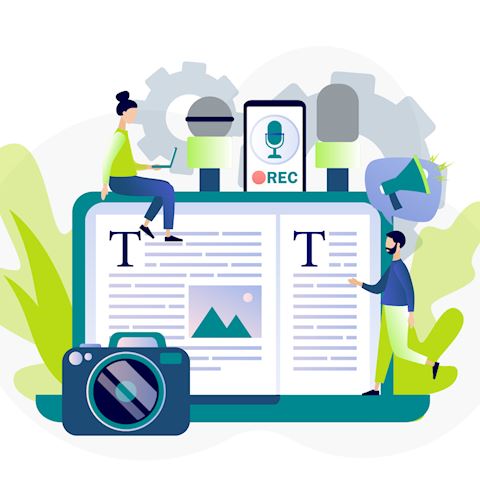
Navigating the rise of technology in construction
In this article we’ll dive into the booming world of smart construction technology, exploring the innovations driving the change and what the future looks like for the industry.

We’ve all heard the excuses over the years, “I’ve been doing this for 20 years”, “ I pitch to clients all the time”, and while these statements are true, the majority of us still need to be trained to best handle being interviewed by the media. You may think media training is going to be uncomfortable and nerve-wracking, but trust us when we say it is invariably worth it - and is actually usually very enjoyable!
Fundamentally, the training will help to ensure you are able to put your main messages across to best effect and also that you don’t stumble when journalists throw the occasional ‘curveball’. Media interview training is a safe and fun environment in which you can develop and practise those interview communications skills.
Clear B2B’s Media Trainer, Keith Taylor (with 20+ years in the industry), has seen it all. Here he sets out some of the fundamentals of his approach to media interview training.
He begins by telling us what media training is: “put simply, it’s coaching an individual or a group of people on how to behave in an interview, be it radio, tv, press or social media. It covers behaviours (how you look and what you say), pitfalls to avoid and, more generally, how to become the most confident version of yourself”.
Keith’s media training is often scenario-based and centred around the three C’s; control, clarity and charisma.
We’ll always speak to delegates in advance - about what they specifically want to focus on, reflecting their past experiences, as well as any future opportunities. It’s great when people open up about what they are most comfortable and least comfortable doing. Often that applies not just to media interviews, but to communications more generally. We then plan our training workshops in a much more customised way.
Typically, sessions will cover:
Preparing for interviews - such as making sure you have anticipated the toughest questions you might get and how to answer them in a way that brings you back to your key messages. Ignoring a question should not be an option! You should also know some background on the journalist who is interviewing you and how they are likely to approach and run the interview?
The workshops give delegates practical advice on things like what to wear in a TV interview - including glasses, colours and even jewellery, whether to sit or stand and what to do in the seconds immediately before an interview starts. We also help people learn how to best handle media interviews not just when they have a positive story to talk about, but also if an organisation finds itself in a sensitive situation or, indeed, a full-scale crisis. In that situation, how you say things is almost as important as what you say.
Sometimes journalists come into interviews with a set agenda, but more often they will simply want to use different question types to elicit as much interesting content from an interview as they can. The challenge for the person being interviewed is to be clear, firm but not defensive and, above all, to convey key messages in a way that does not over-robotic or too corporate.
Keith underlines that almost every journalist is trained to uncover the basics of a story - who, what, why, when and how. Every interviewee should always be ready to talk about these.
Beyond that, he outlines just a few of the question types to be ready for:
Finally, on being asked about your competitors, Keith has very concrete advice… “rarely should you talk directly about them and certainly not in a negative manner! Focus on your own organisation and story”.
So, there you have it. A taster of what media training is, why it’s important and what to expect.
If you or your business are interested in finding out more about our media training courses, please do contact us by emailing Rachel Arquati here.



In this article we’ll dive into the booming world of smart construction technology, exploring the innovations driving the change and what the future looks like for the industry.

Learn how to use presentation opportunities as an effective lead-generation tool in your trade show activity.

Great marketing success comes from keeping your communications focused, engaging and simple to ‘get’ - but that isn’t always so simple to achieve.

With multiple types of technologies being considered, we bring you a snapshot of alternative fuels and review the most prominent pros and cons for each one.